UK Slams Iran's Recent Satellite Launch
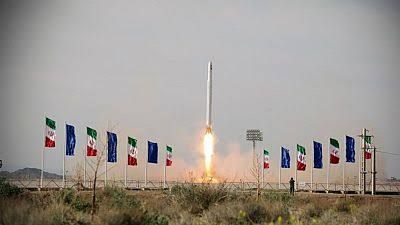
The United Kingdom has criticized Iran's launch of the Nour-III satellite, characterizing it as a blatant disregard for international constraints.

The United Kingdom has criticized Iran's launch of the Nour-III satellite, characterizing it as a blatant disregard for international constraints.
On September 27th, Iran announced the satellite's successful launch using the Qased Space Launch Vehicle, which incorporates technology crucial for the development of a long-range ballistic missile system. The announcement comes at a time of escalating tensions between Iran and Western nations.
“Iran has taken this action despite repeated calls from the UN Security Council to halt its ballistic-missile program. Iran’s actions further prove its disregard of international restrictions and highlight the grave threat posed by the regime to global security,” the Foreign Office declared in a statement on Tuesday.
“Alongside partners, the UK remains committed to taking every diplomatic step to prevent Iran from developing nuclear weapons and to hold the regime to account for its malign activity around the world."
The controversy is not new for the regime. The United States has also accused Iran of contravening the UN Security Council regulations over the years through its satellite programme. As far back as 2017, then-US State Department spokeswoman Heather Nauert called Iran's latest launch "provocative", stating it violated Tehran's 2015 nuclear agreement with world powers. She said: "We consider that to be continued ballistic-missile development."
Iran has a track record of promptly announcing successful space launches through its state-run television channels while often remaining silent on failed attempts. Over the past decade, Iran has launched several short-lived satellites into orbit and even sent a monkey into space in 2013. However, there have been five consecutive unsuccessful launches in the Simorgh program, which involves satellite-carrying rockets.
Additionally, in a separate incident, a fire at the Imam Khomeini Spaceport in February 2019, resulted in the deaths of three researchers, as reported at the time.
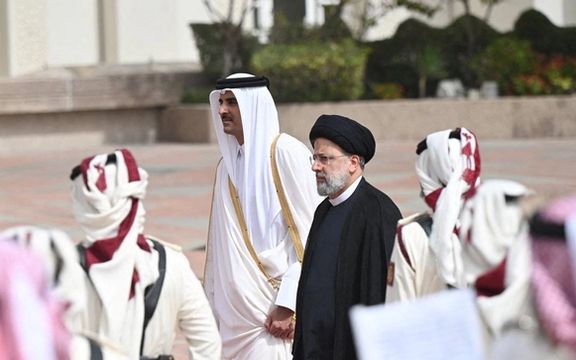
US President Joe Biden called to thank Qatar’s Emir Sheikh Tamim al-Thani for his help in releasing five Americans held in Iran, the two countries announced Tuesday.
The United States agreed in August to allow the release of $6 billion blocked in South Korea and five Iranian regime agents in US prisons to free five American Iranian dual nationals arrested and held in Iran.
Qatari Emir’s office highlighted the call by issuing a statement saying, "During the call, the strategic relations between the two countries and aspects of supporting and strengthening them in various fields were reviewed.”
The White House said the two leaders "discussed their commitment to deepen defense and security cooperation in the region."
Many US lawmakers and analysts criticized the White House for having agreed to pay the “largest ransom” in history and warned that such a large monetary reward for hostage taking will inevitably endanger more Americans around the world.
Qatar is considered a US ally in the region by hosting American military forces but is also one of the few friends Iran has among Arab countries. Last year, Biden designated Qatar as a major non-NATO ally of the United States, fulfilling an earlier promise that he had made to them.
The prisoner release deal, preceded by a US approval to free $2.7 billion of Iran’s money blocked in Iraq is seen as a step to reduce tension and facilitate talks over Iran’s nuclear program.
Qatar has recently held separate bilateral meetings with the United States and Iran that touched on Iran's nuclear program and US concerns about Iranian drone transfers to Russia, sources have told Reuters.
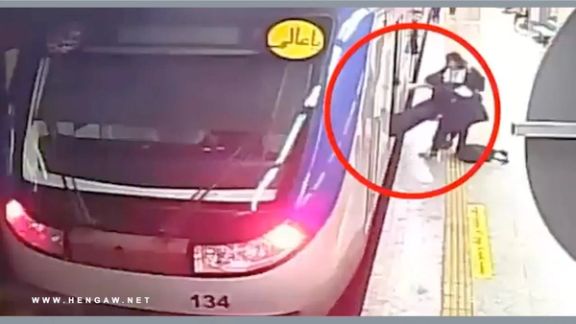
Security is tense around a Tehran hospital where a teenage girl is comatose following an encounter with hijab enforcers, a scenario similar to the night Mahsa Amini died.
On Sunday, Armita Geravand lost consciousness when her head hit a pole, reportedly following a dispute over her hijab with hijab enforcers who shoved her against a pole inside a subway car in Tehran. On Tuesday night, Hengaw Organization for Human Rights, a Kurdish rights group, published a photo of her in the Fajr hospital’s intensive care unit, still in a coma, while security forces have surrounded the hospital to prevent people from gathering and protesting.
The regime has deployed hijab police to all subway stations across Tehran as Iran intensifies the enforcement of hijab, which has become extremely stringent since last September when 22-year-old Iranian-Kurdish woman Mahsa Amini died in police custody, sparking the Women, Life, Freedom protests. Geravand is from Kermanshah, a city with a significant Kurdish population.
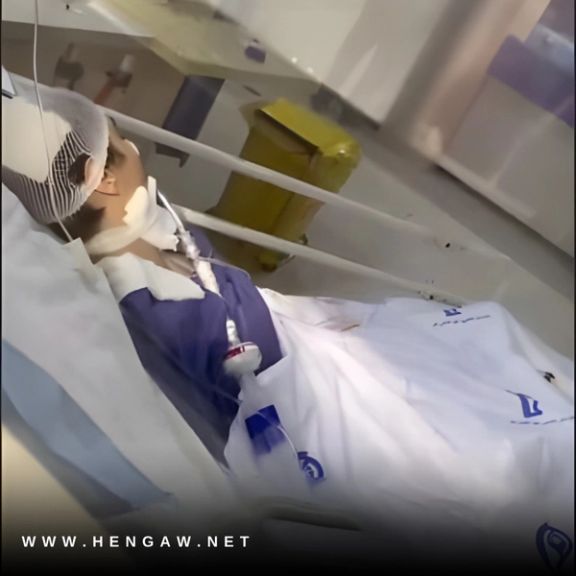
Authorities are handling the situation exactly as they did in the case of Mahsa Amini. They arrested the journalist who wanted to report on Geravand’s situation and aired a video of her parents at the hospital who apparently described the situation as an accident.
In the video, described by a large number of Iranians on social media as “forced confessions,” Armita’s mother said, fighting back tears, "I think she fell... I think they said she collapsed, fell to the ground, her head hit the edge of a subway platform, and her friends took her out..."
Authorities in Iran have repeatedly resorted to airing forced confessions of family members to dodge responsibility for the deaths of people during protests and in detention.
According to the reformist newspaper Shargh, reporter Maryam Lotfi, who followed the victim to the hospital to report the incident, was arrested. She was said to have been released on Monday evening. The main journalists who reported on the death of Mahsa Amini, interviewed her parents, and attended her funeral have been in prison for about a year now.
Masoud Dorosti, the CEO of the Tehran Metro Operation Company, claimed that Geravand’s loss of consciousness was likely due to a drop in blood pressure and asserted that there is no recorded footage of her fainting by anyone, including metro staff.
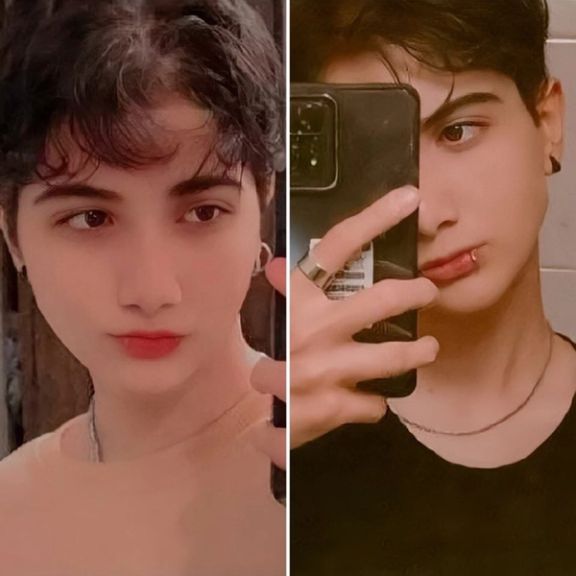
Iranian state media released a short video on Monday in which an unconscious girl is being pulled out from inside a subway car, but there is no footage of her entering the metro, getting inside the car, or the moment she lost consciousness. There are numerous cameras at various spots in metro stations, including inside the cars, as the regime seeks to use the footage against those who defy mandatory hijab rules.
According to a popular social media account, all the footage from the last 24 hours of Tehran's metro has been handed over to the Intelligence Organization of the Revolutionary Guards (SAS).
Iranians have been extensively posting to raise awareness about Armita Geravand, making the hashtag of her name in Persian trendy on X (formerly Twitter) with about 300,000 retweets.
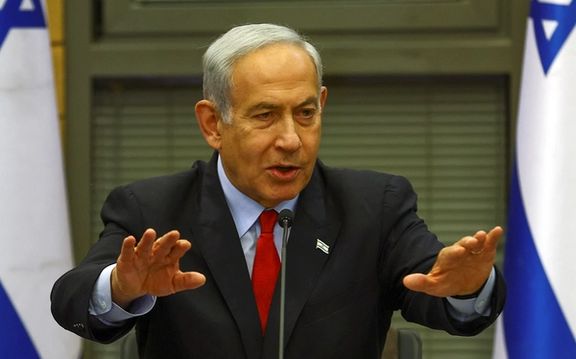
Israeli Prime Minister Benjamin Netanyahu has dismissed Iran's negative remarks about peace with Arabs, saying, "Iran will not prevent [Israel] from further expanding the circle of peace.”
On Tuesday Iran’s Supreme Leader Ali Khamenei warned that governments normalizing relations with Israel would lose, following discussions on Saudi-Israel normalization with US mediation.
US Secretary of State Antony Blinken has stressed that resolving Palestinian issues is crucial for any normalization with Saudi Arabia.
Earlier on Tuesday, Iran's Supreme Leader Ali Khamenei slammed the peace efforts, stating, "The position of the Islamic Republic is that countries that make the gamble of normalization with Israel will lose. They are betting on a losing horse.”
In another comment, Khamenei said, "The Zionist regime is in decline.”
Israel's Defense Minister Yoav Gallant also responded, condemning Iran's regime for threatening peace efforts and stated, "The murderous terror regime in Iran has already succeeded in dissolving several countries it has taken over. Now it is trying to sabotage peace efforts with idle threats."
While Iran reestablished diplomatic ties with Saudi Arabia earlier this year, Iranian officials have consistently criticized Riyadh's attempts to forge relations with Israel, considering it harmful to the Palestinians.
Israeli-Saudi normalization could reshape the Middle East significantly, aligning two major US allies against Iran.
Tehran provides support to militant Palestinian groups, such as Hamas and the Islamic Jihad, which have escalated attacks against Israel and its civilians this year. These groups are part of Iran's network of proxy forces spanning from Iraq to Lebanon and Yemen, receiving both financial and military assistance from Tehran, a fact openly acknowledged by the Iranian government.

The Iranian regime has launched a campaign against Saudi Arabia after a Saudi football team refused to play while a bust of IRGC's Qassem Soleimani was on display.
The furor broke out on Monday evening when Al-Ittihad was due to play Iran's Sepahan at Esfahan's Naghsh-e-Jahan Stadium.
The Saudi team's players refused to leave their dressing-room in the standoff against Iran's move to place a bust of Soleimani in the stadium. The IRGC Quds Force general was behind the brutal Houthi militia attacks on Saudis during the years-long war, before he was killed in a US airstrike in Baghdad in 2020. Instead of playing, the team went directly to the airport and left for Saudi Arabia.
The Iranian club has announced plans to file a lawsuit against the Saudi team at the Asian Football Confederation (AFC) while Al-Ittihad blames the hosts for the cancellation of the match. A Saudi sport TV show cited an unnamed source from the club as saying that the Iranians were asked to remove the bust prior to the match.
Alireza Marzban, a former coach of Sepahan, told Iran International that following the request by the AFC to remove the statue, officials sought permission from the Office of the Supreme Leader, which did not grant permission for the removal of Soleimani’s bust. He said, "Sepahan FC tried to remove Soleimani's bust from the stadium through Esfahan’s Friday prayer Imam – Ali Khamenei's representative in the city -- and the governor, and they even contacted the Supreme Leader's office. However, all of the bodies opposed the request.”
Hours after the cancelled encounter, the municipality of the capital Tehran started installing numerous banners of Soleimani -- revered as a hero by regime hardliners -- across the city. The posters of the slain commander of the IRGC-Quds force -- designated as a terrorist group by several countries – bear the caption that reads: “They are afraid of his eyes.”
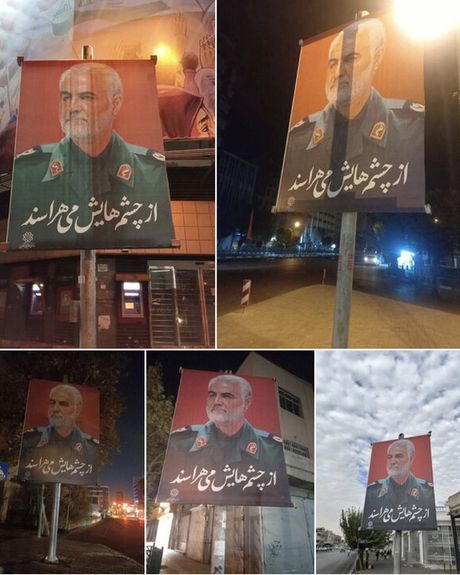
Soleimani was responsible for the actions of Iran's proxies across the region, and scores of terror attacks leading to the deaths of civilians and attacks on US targets in the Middle East.
Saudi Arabia designated Soleimani and other IRGC commanders as terrorists in 2018. The Saudis accused Soleimani and the Iranian military of attacks on Persian Gulf shipping and oil installations.
Revolutionary Guard-affiliated Fars news said the city is “adorned” with photos of the commander in response to the Saudi team's refusal to play. The IRGC Quds force is designated a terror group by several countries including the US, but to regime fanatics.
Regime propagandist Ali-Akbar Raefipour said on X (formerly twitter) that the move by Al-Ittihad players were “deliberate and pre-planned,” claiming that the symbolic move was related to the death anniversary of Saudi journalist Jamal Khashoggi. Khashoggi was allegedly murdered and dismembered inside the Saudi Arabian consulate in Istanbul in October 2018.
The drama has rocked the newly restored diplomatic ties between the two nations, which were reinstated only this year after years of standoff. In June, visiting Saudi Foreign Minister Prince Faisal bin Farhan also walked out of the room at Iran’s foreign ministry building – where a news conference was being held -- in protest to a picture of the IRGC general, the architect of proxy wars in the Middle East, including arming Yemen’s Houthis against Saudi Arabia.
Prince Faisal immediately requested the venue of the press conference to be changed and the Iranian side complied in a bid not to tarnish the newly revived relations between the two countries after years of tension which isolated the Iranian regime in the region.
The match between Al-Ittihad and Sepahan was mired in controversy even before it was called off. Videos surfaced Monday showing a large number of women denied entry to the stadium, with a police commander telling them that “women were not supposed to be let in to watch the match.” The police commander explicitly said that they had planned to allow only a cherrypicked group of women just to meet the regulations of Asian and global football authorities who have threatened to disqualify Iran if it does not allow women in the stadiums.
Among the controversies surrounding the match is how Iranian spectators reacted to the Saudi club’s symbolic move against the IRGC commander. People slammed the Iranian regime for making every aspect of life a subject of political propaganda, chanting “We do not want political football.” However, the most dominant slogans were in praise of Iran’s monarch Reza Shah, the first king of the Pahlavi dynasty. As people were leaving the stadium, they were chanting other slogans in support of monarchy in Iran. The disappointed spectators also threw garbage at the bust of Soleimani who has been idolized by the regime with streets and stadiums named after him.
Ordinary Iranians have set fire to or destroyed his statues and banners as an icon of the Islamic autocracy. In one such incident last year, Soleimani’s statue was torched hours after it was installed. On the third death anniversary of his death, people in several cities, including Tehran, Karaj, Zarinshahr, Rafsanjan, and his hometown Kerman, burned his statues and posters. Despite the Islamic Republic’s propaganda to portray Soleimani as a national hero, many people believe he was guilty of spreading violence in the region and repression at home.
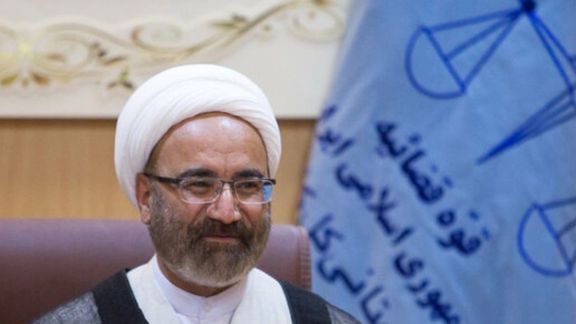
Two sons of Iran's first deputy head of the Judiciary are involved in a $400 million money laundering and corruption case.
The sons of Mohammad Mosaddegh are facing a range of allegations, including the formation of a corruption network, money laundering, forgery of documents, and interference in judicial cases.
The news of the detention of his two sons, who have been confirmed as participants in this network, has recently come to light. Their apprehension follows the arrest of an individual approximately eight months ago, charged with smuggling, money laundering, and other infractions.
According to the IRGC-affiliated Tasnim News Agency, under the directive of the Chief Justice, an investigation was initiated, leading to the detention of eight individuals connected to the case so far.
In July 2021, shortly after Mohammad Mosaddegh assumed the role of first deputy head in the Judiciary, his two sons were implicated in the network. Mosaddegh, a clergyman born in Tabriz, has held various high-ranking judicial positions during his career.
During his tenure, Mosaddegh was ironically advocating judicial reforms. He made efforts to bolster his image for an anticipated presidential candidacy by launching media campaigns to showcase the changes and advancements within the judiciary.
In a previous case, another senior judiciary official, Akbar Tabari, was arrested in 2019 for leading a bribery network and personally accepting multiple bribes. He was sentenced to 31 years in prison.
Transparency International ranked Iran as the 150th out of 180 countries in its 2021 Corruption Perception Index, categorizing it as one of the world's most corrupt nations.